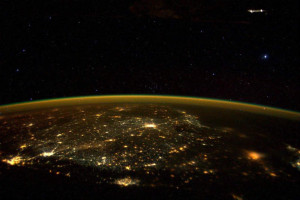Google and Samsung just made sharing files on Android much easier
Google and Samsung have teamed up to make sharing files between Android devices a lot easier and faster, by bringing the latter’s Quick Share utility into all of Android.
As its name would suggest, Samsung’s Quick Share function allows the fast sharing of things like pictures, files and text between two compatible Samsung devices, for example a Galaxy S23 and Galaxy Tab S9. The feature is similar to Apple AirDrop.
Google has a similar tool called Nearby Share, which also facilitates the easy sharing of files across nearby devices.
Then at CES 2024, Google announced that it’s been collaborating with Samsung to not only bring Quick Share to more Android users, but also integrate Nearby Share with the tool.
“We’ve integrated the experiences and created the best default, built-in option for peer-to-peer content sharing across all types of devices in the Android and Chromebook ecosystems,’ explained Sameer Samat, general manager and vice president at Google’s Android Ecosystem arm.
“This means with a simple tap of the new Quick Share icon, you can see a list of available devices close by. You remain in control of your privacy, and can choose in your phone’s settings who can discover your device and send files, whether it’s everyone, only your contacts or just your own devices. Quick Share will start rolling out to current Nearby Share enabled devices next month.”
What might seem like a fairly basic bit of integration is actually a bit of a boon from my perspective. While I do like using some of the best Samsung phones, the glut of extra apps the company puts on its devices too often double up on the ones that Android comes with as standard, which can make for a frustrating experience, with two options being served up to do essentially the same thing.
Samsung has got better at letting users hide away these extra apps and choose what to install when setting up a new Galaxy phone, but more integration will help make for a seamless and better overall experience.
Furthermore, Samat said that Google will look to bring Quick Share to Windows machines: “To make sharing even more seamless between devices, we’re working with leading PC manufacturers like LG to expand Quick Share to Windows PCs as a pre-installed app.”
Google and CES 2024
(Image credit: Google )
Google had a few more announcements to make at CES, notably expanding the Fast Pair utility in Android to larger screens. As such, the Bluetooth-centric pairing tool will work with Chromecast and Google TV devices starting in February, with more Google TV devices to come as the year progresses.
Next up is the ability to use Chromecast casting features in more apps and devices, as we’ve explained in our roundup of the Chromecast’s new features. As Samat notes: “You can also look forward to more devices launching with Chromecast built-in, such as the 2024 LG TV series. And later this year, we’ll extend Chromecast built-in to LG Hospitality and Healthcare so that when you’re on the go, you can continue to enjoy a show or movie from your streaming apps on the LG TV in your hotel room, without having to log into each app and having to remember to log out when you’re done.”
Such casting will also come to Spotify and YouTube Music, letting you move what’s playing from a connected Pixel phone to the likes of a Pixel Tablet without needing to stop or disrupt the flow of music.
Speaking of smart home devices playing together nicely, Google is expanding its interoperability between its own devices and the Google Home platform with the Matter smart home standard. This should mean that devices running the Android TV and Google TV platforms can act as a Google Home hub, letting a suite of smart devices be controlled from a large screen. And naturally, this’ll mean more Matter-enabled smart home devices can be controlled via the likes of the Google Nest Hub.
Finally, Android Auto is getting an upgrade to bring more Google apps and services into cars that support it. One such service is the ability to pull real-time battery information from an electric car and offer an estimated battery level upon arrival at a selected destination in Google Maps, while flagging charging stops on the way.
In short, CES for Google has been more about the integration of apps and services, with the search giant seemingly taking a backseat while headline-grabbing hardware gets revealed, like Kohler’s new smart shower technology that nearly lead to us indecently exposing ourselves at CES.
We’re covering all of the latest CES news from the show as it happens. Stick with us for the big stories on everything from 8K TVs and foldable displays to new phones, laptops, smart home gadgets, and the latest in AI.
And don’t forget to follow us on TikTok for the latest from the CES show floor!
You might also like
Honor’s new ‘intent-based UI’ lets you order food and taxis with just one swipeLast-minute Samsung Galaxy S24 leak teases potentially crucial display upgradeAsus’ ROG Phone 8 is made to go beyond gaming with boosted cameras and flagship specs





